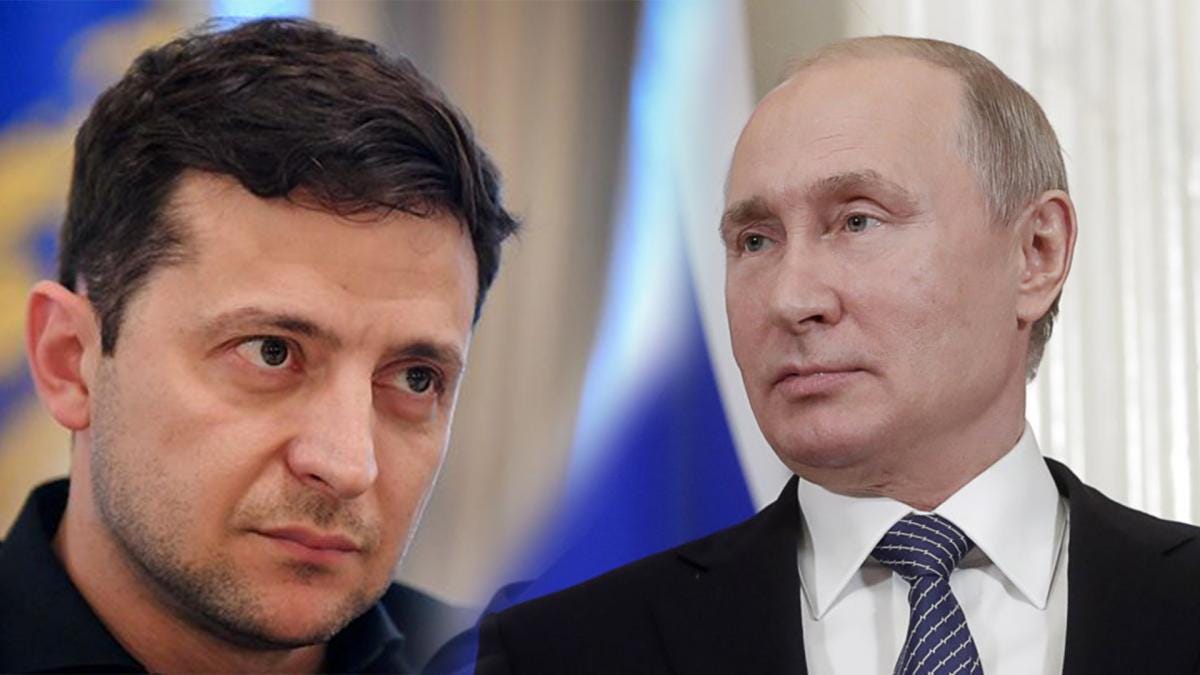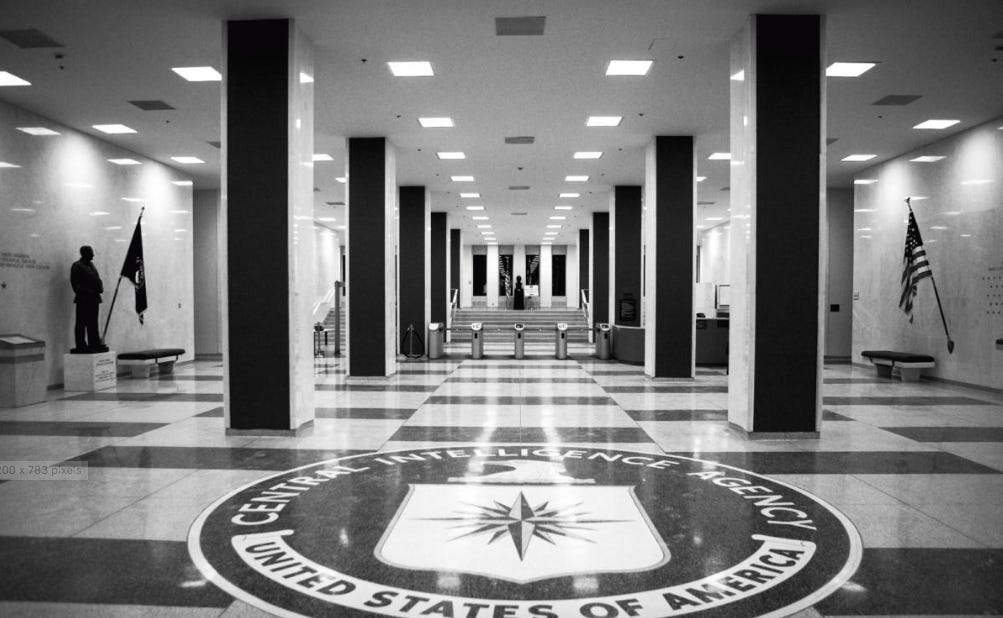Vladimir Putin tells a story about trapping a rat in the corner of his parent’s apartment kitchen as a kid in Leningrad, now St. Petersburg. Just when he thought he had it caught, it leapt over his back and scampered away at full speed.
As an old spy, I am always searching for little autobiographical statements that betray larger motives. The kitchen escapade is an important parable for Putin. In the Ukraine-Russian War, the West is not the rat—Putin is. And Putin is confident he can still escape.
For a long while after Russia’s botched February invasion, it looked like Putin was cornered. But over the last few weeks, a number of events and actions suggest that Putin will remain in Ukraine for the long haul and is looking to jump the West.
Like his idol Stalin, he has ramped up support at home to a patriotic fervor. The Russian public has been doused in a “motherland” media campaign, reinforced by the highest leadership levels of the Russian Orthodox Church. And the Russian public are buying into the nationalist spirit of the “freeing” of Ukraine.
Even while taking heavy casualties, the creaky Russian army and its revolving leadership are slugging it out with the weaker Ukraine forces, holding them at bay and dislodging them from key towns and cities in the south and east. It is consistently gaining small bits of territory—with no sign of withdrawal nor shortage of weapons and ammunition.
In effect, Putin has put forward his own Stalinist “scorched earth” policy, burning and destroying areas his army has captured. He has ramped up the lethality of his weapons, including the possible use of hyperbaric and phosphorous bombs. These are weapons of both destruction and terror. They are meant to cause military and civilian casualties and inflict total devastation in their wake.
As for terror tactics on the ground, Russian troops are committing war crimes with mass killings, torture, rape, and other atrocities. “Hearts and minds” campaigns to win over the locals are not in their playbook: They want to instill utter fear in them. All along, the former KGB agent and his toadies issue perfunctory, Stalin-style denials of videotaped atrocities and dismiss Western human rights charges as fascist lies.
Grand Illusion
Former Secretary of Defense Robert Gates—a one time intelligence officer himself—says a good spy smells roses and looks for the funeral. Years ago we both walked daily into a building with a biblical quote carved into the entrance wall: “And Ye Shall Know the Truth and the Truth Shall Make You Free.”
Well, what’s the “truth” about Ukraine? The U.S. intelligence community’s first take was that comedian-turned President Volodymyr Zelensky and his troops would flee and the Russian army would roll into Kiev in three weeks. That, obviously, didn’t happen. Over the next three months, as Zelensky and his people stood tall, Western responses to the Ukraine crisis increasingly imparted a sense of comforting optimism—based on what we wanted to see, not as it actually was.
It’s indeed important that economic sanctions bit the Russian oligarchs, including Putin. It is important that Zelensky’s “Churchillian” defiance and nightly exhortations have been well received in the West. It is important that better and more weapons are getting into Ukraine every day. It is important that NATO has pulled its act together, however ungainly. It is important that Sweden has discarded 200 years of neutrality to deal with this travesty. It is important that Finland has joined the fight and doubled the size of NATO’s frontline border with Russia. And it is crucial that the Ukrainians remain willing and able to fight courageously and to the last person, such as in the steel mill of Mariupol. Alas, there may be more heroic, and horrific, last stands in the coming days.
What a good spy knows in his gut is that only ground truth matters. And in war that comes down to each side’s resolve—the determination and ability to kill the enemy, gain ground, and hold it. In that world of ugly reality, we are still only in the early chapters of a long fight. For a moment there, Putin looked cornered—but he was not caught. He’s getting ready to jump.
Of Time and Men
It’s become a truism that Westerners, especially Americans, like quick, clean solutions. Sometimes it goes that way: George H. W. Bush’s rout of Iraq from Kuwait in the “100 Hour War.” NATO’s bombing of the Serbs to the negotiating table. But those are rarities. More often in recent years, there’s been stalemates. And there’s nothing a party in such a war likes hearing more than his enemy declaring “mission accomplished” before the battle is over. It happened in Vietnam. It happened in Iraq. And it happened in Afghanistan. It may well happen in Ukraine.
Putin is a spy with a good sense of smell—and he can smell a funeral from the roses in the West. He can already hear the sounds rumbling in the distance of the West’s notorious impatience. From the get-go, Kiev’s European allies have shown varying degrees of commitment to the fight. In the U.S., domestic politics often gets entangled with foreign engagements. The Republican attacks on inflation under Biden may end up twinned with assaults on his perilous commitment to Ukraine, especially if things turn bad. Experts have taken to various leading Western foreign policy journals to argue about the appropriate “end game” for Ukraine. No less than Henry Kissinger, architect of Richard Nixon’s “elegant bugout” from Vietnam, has suggested Zelensky should settle for partition.
Experts wonder how long Zelensky can hang on as the refugees, atrocities, and casualties mount in his own country. And equally, how long can Ukraine’s forces fend off the steady, slogging, numerically superior Russian army, no matter its incompetent tactics, leadership, and unhappy soldiers, whose reported widespread disaffection for the war has come nowhere near a mass desertion.
The Rat Trap
Based on my Cold War experience, and in the final analysis, what the West needs to do now in Ukraine will be its hardest test: maintain its resolve. Not for months—for years to come. Ukraine has benefited greatly from Washington’s rapid U-turn on its initial dour assessments of Kiev’s chances of survival. But sanctions, weapons and timely intelligence will not suffice. What’s required to trap Putin and save Ukraine is a united front over the long haul. Praise the Lord but—faster please—pass the damn ammunition. And more of it.
But what should we, the West, want? And what can we support? That Ukraine be made whole? If so, how? Should it be made to pay reparations for the damages, physical and human, it has caused, as Zelensky wants? And what about war crime trials? All worthy goals, however unrealistic. Can we, the principal supporters of Ukraine, stay in the fight no matter what? Through a long, brutal slog? The questions we once asked about the twilight struggle with the Soviets are here again, but even more dangerous. Nikita Khruschev vowed to “bury” us in 1956. That didn;t work out so well. Putin and his henchmen threaten nuclear war over Ukraine. That ending has yet to be written.
Make no mistake, Putin, like his hero, the wartime Stalin girding his loins as the Nazis approached the gates of Moscow, knows he’s trapped by his foolhardy Ukraine adventure, but he’s also no doubt confident it’s only for the moment. Like Stalin, he’s biding his time, grinding down the Ukrainians in the east and south, shoring up patriotic fervor and wiggling around sanctions at home, waiting out the dissolution of Western resolve he’s confident is coming.
And so, the question stands for the West: Are we prepared to pay any price to clobber Putin or will we let him escape? My sense, as an old Cold Warrior, is we may not.
Ronald Marks is a former CIA officer who served as Senate liaison for five CIA Directors and intelligence counsel to two Senate Majority Leaders. He currently is a non-resident senior fellow at the Scowcroft Center at The Atlantic Council and visiting professor at the Schar School of Policy and Government at George Mason University.
SpyTalk Editor-in-chief Jeff Stein contributed to this piece.







Excellent read; thanks for the necessary analysis.
Interesting. I believe you are right, particularly that a potential economic recession is heading toward us, not to mention lingering pandemic risks. These two crises will already mobilize a lot of resources for the West, and could distract it away from the Ukraine battlefield.
The Russians are in for the long haul as they have now no other choice than to beat Zelensky. What Moscow started, it must finish. But the same is valid for the West: after the disasters of Iraq and Afghanistan, the West cannot allow itself to lose this proxy war with Russia.
A Russian victory would have huge geopolitical implications in the rest of the world: how trustworthy would the West be as an ally in, for example, Asia or the Middle East, if Ukraine would be defeated?
Aside from the question of remaining resolute, what would the West (NATO) do if Putin expands its war of aggression towards Moldova? Or what if Russia uses tactical nuclear weapons in Ukraine? Not sure if NATO would mobilise its troops to retaliate.
NATO too needs a ‘Churchillian’ figure at its head, but alas no one is yet to be found. On paper NATO can beat Putin, but has Washington/ Brussels the political spine to face off the Russians directly?